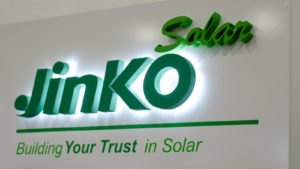
The past two years have been marked by staggering volatility in the price of fossil fuels such as crude oil, natural gas and coal. This has led to a bullish narrative being developed around the renewable energy sector as a whole. While it is reasonable to be bullish about a sector that has a projected compounded annual growth rate (CAGR) of 10.01% over the next five years, investors should be careful about the renewable energy stocks they invest in.
Dire financial situations, lack of profitability and a lack of innovation, among other reasons, should be red flags in any company. These three renewable energy companies display just that and investors would do good for themselves by selling them.
Plug Power (PLUG)

Plug Power (NASDAQ:PLUG) provides hydrogen and fuel cell products worldwide. It provides multiple types of fuel cells, such as GenDrive and GenSure, among others. Established in 1997, PLUG hasn’t been profitable for the past decade.
PLUG stock missed earnings per share (EPS) targets by 64 cents in the fourth quarter. It also has a profit margin of -153.57%. This dire financial state is due to a simple fact: hydrogen-based cars don’t work. Fossil fuel companies are advocating for hydrogen production as a by-product of burning fossil fuels. After this, the greenhouse gas emissions would be stored underground. However, using renewable energy from sources such as wind, solar or hydropower is much more efficient and sustainable.
Over the long run, PLUG has hedged its bets in a sector that will fail to give the returns investors want. It is one renewable energy stock that investors should sell off.
JinkoSolar (JKS)

JinkoSolar (NYSE:JKS) produces photovoltaic (solar panels) products. The company offers solar modules, silicon wafers, solar cells, recovered silicon materials and silicon ingots.
JKS stock’s quarterly earnings growth has decreased by 22.70%, with an operating margin of -1.47%. Yahoo! Finance has given JKS stock a “Hold” rating, with multiple banks such as Goldman Sachs and Roth giving the stock “Sell” or “Neutral” positions.
JKS stock was supposed to earn $2.54 per share in Q4 2023. However, according to the Motley Fool, it only earned 2 cents per share. Even though there was a 76% increase in output, revenue only grew by 9%. Additionally, the gross margin dropped 6.8% to 12.5%.
Rapidly dropping margins indicate that this company is in a bad state for future growth and that other companies might be able to capitalize on the growing market. Thus, JKS stock should be one of the top renewable energy stocks to sell.
Sunrun (RUN)

Sunrun (NYSE:RUN) designs, develops, installs, sells, owns and maintains residential solar energy systems in the U.S. It also sells solar energy systems and products, such as panels and racking, and solar leads generated to customers.
RUN stock’s quarterly revenue growth decreased by 15.20%, which is present along with an operating margin of -38.24%. RUN’s profit margin is -71.00%, which certainly raises a lot of red flags about the profitability of RUN stock. It has missed its earnings estimate by $4.72 in Q3 2023 and $1.31 in Q4 2023.
The value of RUN stock has decreased by 38.85% over the past year. Additionally, they currently have an operating cash flow deficit of $820.74 million, further indicating financial weakness. In a capital-intensive sector such as solar panels, bad financials are an indicator of future failure. Thus, RUN stock should also be one of the renewable energy stocks you sell.
On the date of publication, Achintya Pasricha did not hold (either directly or indirectly) any positions in the securities mentioned in this article. The opinions expressed in this article are those of the writer, subject to the InvestorPlace.com Publishing Guidelines.




